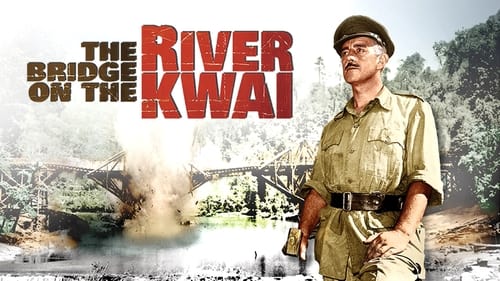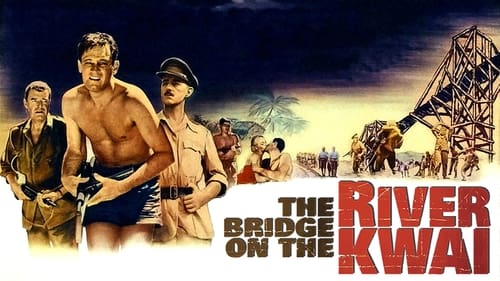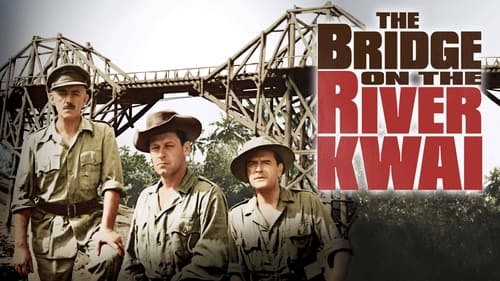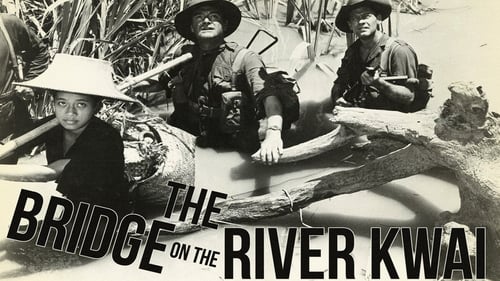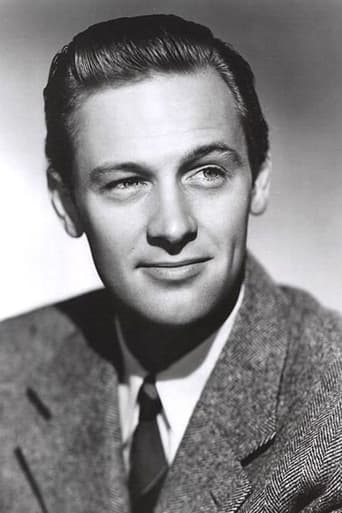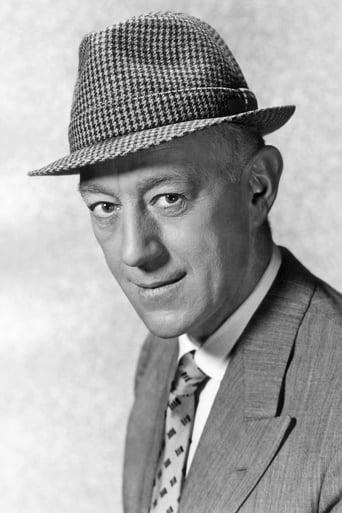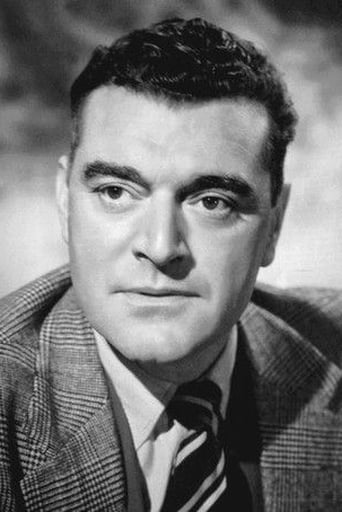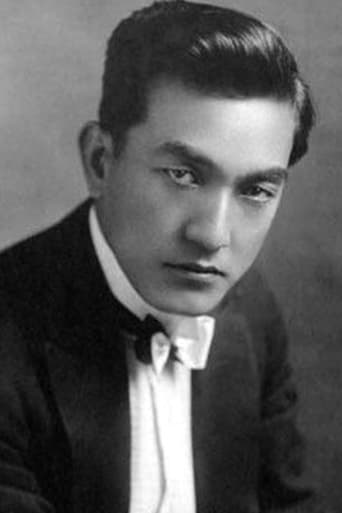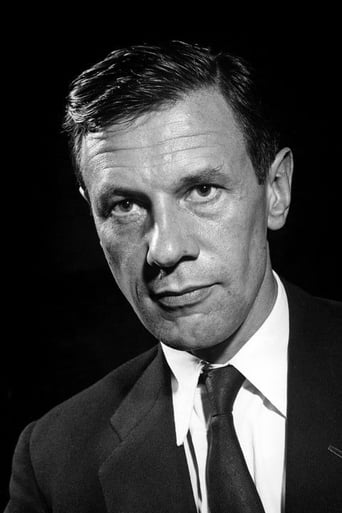ChanFamous
I wanted to like it more than I actually did... But much of the humor totally escaped me and I walked out only mildly impressed.
Bea Swanson
This film is so real. It treats its characters with so much care and sensitivity.
Roman Sampson
One of the most extraordinary films you will see this year. Take that as you want.
Dana
An old-fashioned movie made with new-fashioned finesse.
BellaDancerSF
Brilliant filmmaking. Suspenseful, articulate direction. Genius performances, starting with Alec Guinness, and all the way through. Even a great song and theme. Brilliant.
adrian-43767
In my humble opinion, this is Director David Lean's finest film (just above BRIEF ENCOUNTER, OLIVER TWIST and GREAT EXPECTATIONS) and, albeit less famous, spectacular and beautiful than LAWRENCE OF ARABIA, it is a more self-contained and perceptive film, in regard to human emotions and pitfalls.Frankly, I do not give a toss whether this film is historically inaccurate. It does not claim to be true to life, and there is a great lesson to learn from it, notably that following principles to a T does not pre-empt the emergence of contradictory situations, such as when Colonel Nicholson (sublimely played by Alec Guinness), who had refused on principle to have his officers work 'like coolies,' ultimately is quite ready to relent on that demand when he becomes entranced by the notion that the bridge could last 600 years, and the British Army remembered for its construction.Guinness deservedly picked up the Best Actor academy award for his role as Col. Nicholson, who stubbornly wants to maintain conventional and civilized values in the jungle and in the face of an enemy of a different and opposing culture, embodied by the Japanese camp commander, brilliantly played by Sessue Hayakawa.Holden acts as a kind of comic relief, an American caught in the middle of British POWs in Burma, and his role is reminiscent of the one which won him an Oscar in STALAG 17, where he acted as the in-between fellow who managed to bribe the guards and get the goodies, but who has enough decency in him to earn the viewer's sympathy.Jack Hawkins is superlative as the British commander who leads the operation to destroy the bridge on the River Kwai. Why he did not pick up a best supporting actor Oscar beats me. He is the very embodiment of the stiff upper lip British officer with touches of sardonic humor and complete professionalism.And, finally, James Donald, as the medic with the bird's eye view (an eagle is seen flying over the forest some 3 or 4 times during the film), who sees all with detachment and concludes that war is madness. His is a minor but crucial role, and he delivers with great aplomb.Photography, action sequences, script, and soundtrack are all of the highest quality. THE BRIDGE ON THE RIVER KWAI is, without a doubt, one of my all-time favorites and perhaps the greatest anti-war war movie ever made. 10/10
lasttimeisaw
The defining piece among David Lean's magna opera, THE BRIDHE ON THE RIVER KWAI ushers in Lean's artistically ripe years with his epic-scale storytelling coming about in the most picturesque locations among our mundane world. In the heart of its hearts, TBONRK is an anti-war infotainment, as it is book-ended by British Major Clipton's "it's madness!" exclamation after its breakneck finale, madness is constituent of war, no one can say otherwise, but as in any superlative narrative-leaning cinematic conception, Lean cannily adopts an ambiguous route in lieu of stating the obvious (one must also lure those ticket-buyers who are steeped in nationalism, patriotism and heroism into the auditorium) and lets the rousing spirit prevail among those allied WWII POWs in Burma, under the high-handed command of Japanese Colonel Saito (an Oscar- nominated Hayakawa, giving a forcibly layered presence against the role's discriminated condition), to build a bridge over the River Kwai that will connect Bangkok and Rangoon. The meat of the film's first half is a duel of will between British Lieutenant Colonel Nicholson (Guinness, walks away with his Oscar with august poise and solemn diction) and Saito, and who is the winner? The answer is as plain as the nose on anyone's face. Nicholson's obduracy ostensibly stems from his admired patriotism, to safeguard the last remnant of dignity against the ghastly adversity, but there is just a fine line between patriotism and jingoism, he will not bat an eye if he dies for his alleged good cause, naturally, it entails that no other lives can alter his mind, and shall we really extol such hidebound doctrine? This is where the film daringly touches a raw nerve in Nicholson's final triumph, why is he hailed by his fellow prisoners? He has done nothing for them from a pragmatic angle, what he achieves only fulfills his ego, an ego Lean beguilingly links with British's own colonial pride, to build a sturdy bridge in a foreign country and have his name inscribed in the plaque, disregarding its utilitarian consequences which will further extend the warfare and compound the affliction. On the other hand, we have the American Navy Commander Shears (an omnipotently, effortlessly charismatic Holden), who miraculously escapes from the prison camp alive, and swears that nothing can haul him back to that living hell. But, "there is always something unexpected", that is the tag-line of the picture, in the exchange between him and the British Major Warden (Jack Hawkins, spiking a dosage of empathy into his martinet blood), Shears is literally coerced into "volunteer" the mission to blow up the bridge because of his inconvenient "imposter" identity, yes, he is not a commander but a common soldier taking the uniform to secure better treatment in captivity (a very understandable action, surely is below Nicholson's hallowed principles). What happens in the second half actually shows that Shears' "insider" distinction makes no import in their mission or whatsoever, the army might just as well command any soldier as willing as the Canadian Lieutenant Joyce (Horne, a tenderfoot but swell swimmer), there is cruel irony seeping underneath the shock troops' daredevil heroism. As a rule, the mockery shouldn't be too offensive (it is not a vehement agitprop), Shears' penchant for hedonism and pragmatism alternates with Nicholson slippery to self-indulging delusion is the constantly battling tenors thrusting this film to the crunch, as Nicholson's "what have I done?" epiphany dished up with a ghost of vague contrition and followed by a chancy act of detonation, all we want to ask in the aftermath, is it really worth it?Apart from several peccadilloes, for instance, the technical incapacity of the Japanese party comes far too convenient (as it is not the case in reality) and the unpleasantness of war prisoners' state- of-play is categorically diluted, TBONRK is a sensational journey, peopled with vivid characters (its nearly male-exclusive cast, saving for some female exploitation footnotes, is all in full mettle), sublime landscape (including a striking worm's-eye view shot with collective wing-taking avifauna in the wake of gunshots) and well-imposed suspense, not to mention the food-for-thought deliberation it triggers in hindsight, one must see it to experience it!
sir-mauri
Wow this is still a powerful work. The Bridge on the River Kwai is David Lean's WW2 epic made several years before his masterpiece Lawrence of Arabia. It's not on that level of perfection, but it's still a damned great movie. They don't make films like this anymore. I remember being shown this film in a movie appreciation segment by a teacher in elementary school. I then would watch it every chance I got as I grew older. Alec Guinness and William Holden give what may be their best performances. Younger people raised on fast-paced CGI hyper-edited ADHD movies would probably complain that this is boring. Their loss, and dead wrong. THIS is how films should be made. Take your time with location work and character development. There is one particular shot in the jungle where the commandos are hunting a stray Japanese solder. They startle hundreds of bats from sleep, and the bats fill the sky. The shadows of the bats flicker on the jungle below, making the search even more difficult due to the eye being drawn all around to the shadows flickering on the leaves. Brilliant scene. If you haven't seen this movie, you owe it to yourself to watch it. "Madness."




